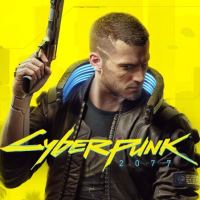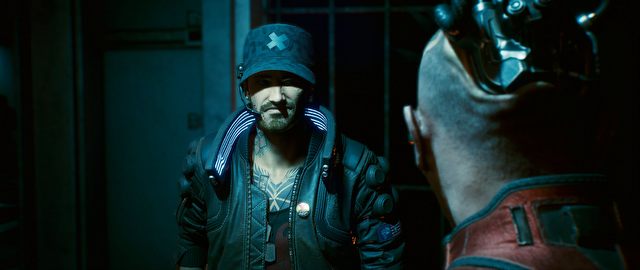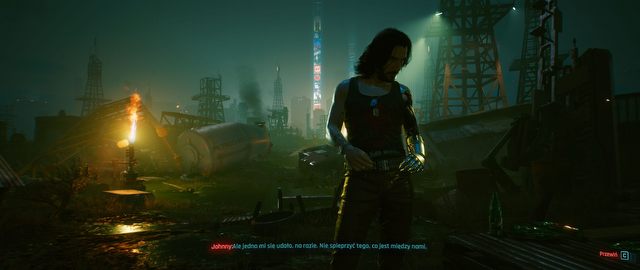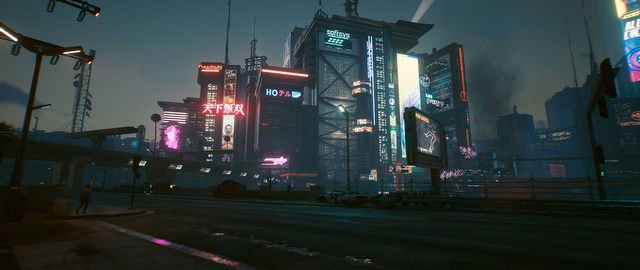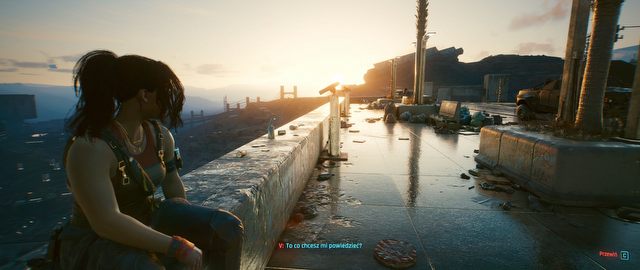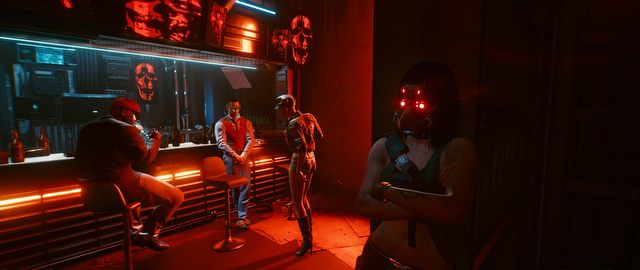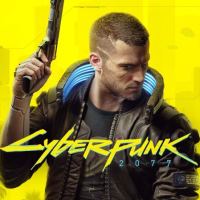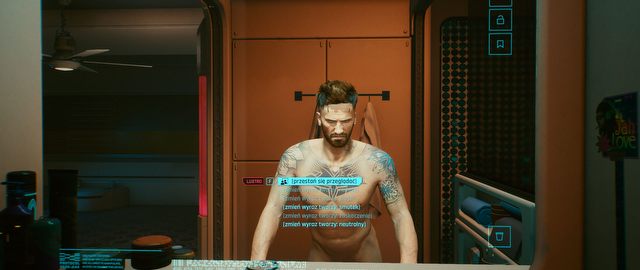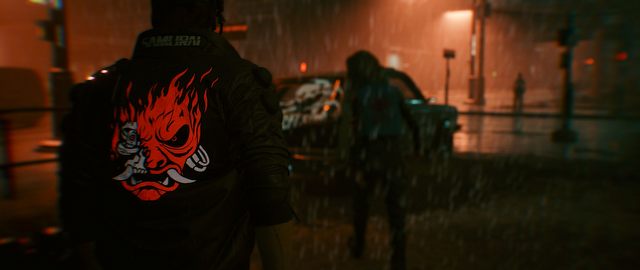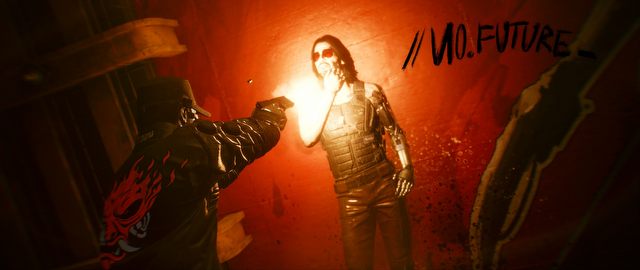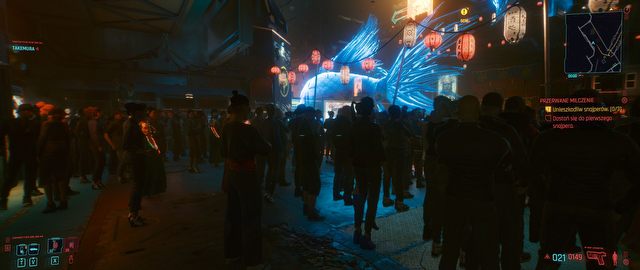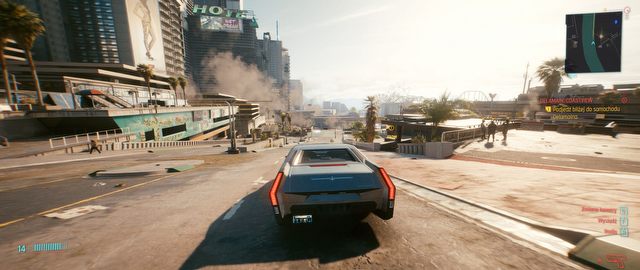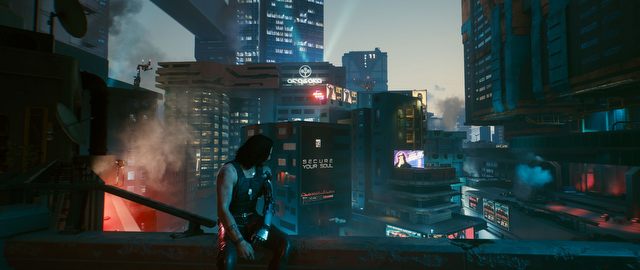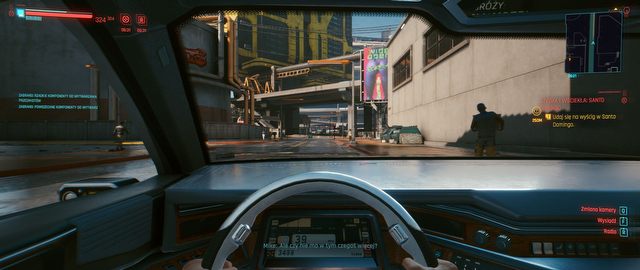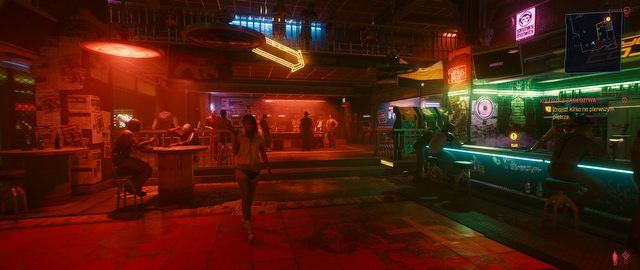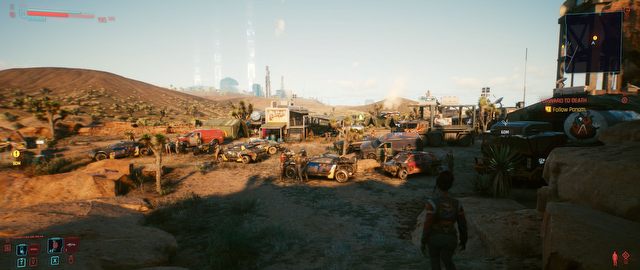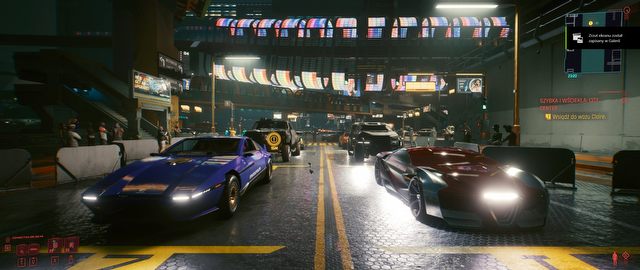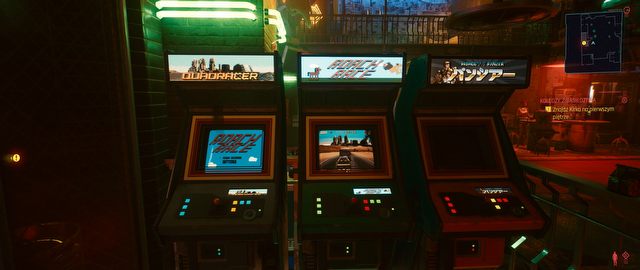Cyberpunk 2077 Review - Samurai, You've Got a Great RPG to Play!
The newest game from CD Projekt Red is proof that The Witcher 3 was not an accident. It's a great RPG mixed with action, which could use one more small delay – just to clean all the bugs.
The review is based on the PC version.
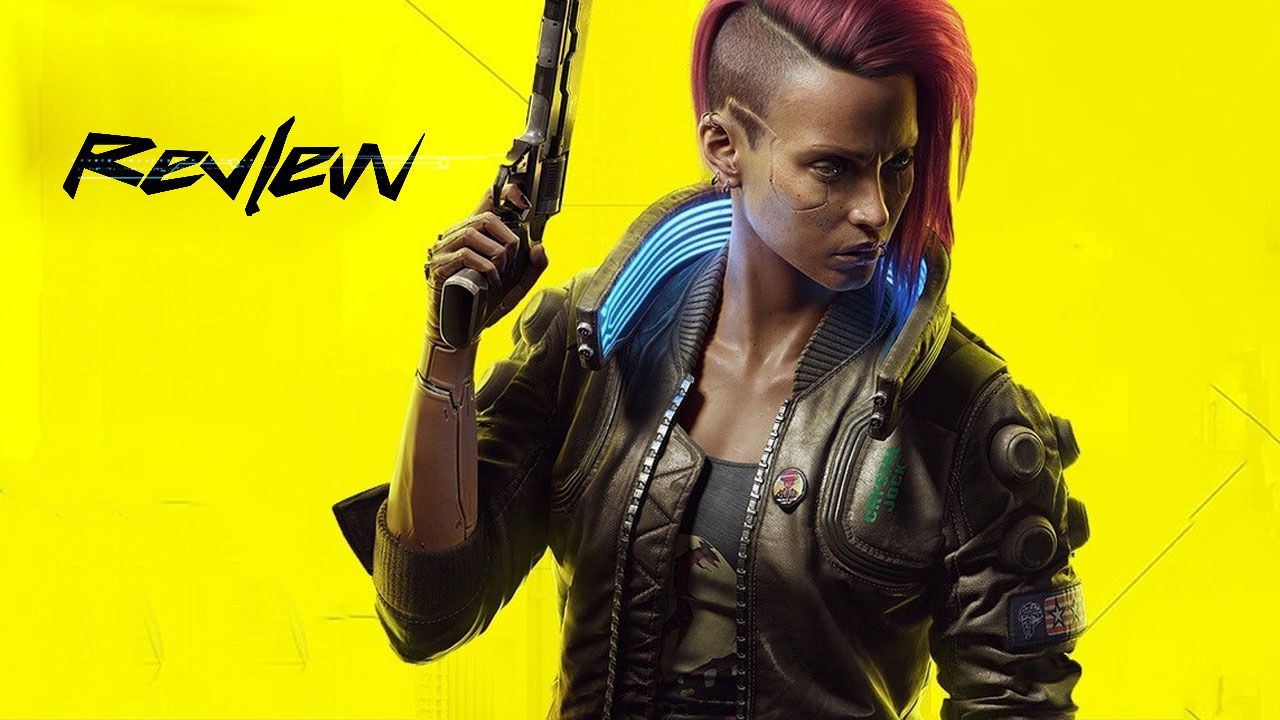
We're finally here. After nearly a decade, three postponements; after writing writing hundreds of newspieces and over a dozen articles; after spending about twenty hours with preview versions of the game, we've finally played, and completed, Cyberpunk 2077, and we can finally review it. I've spent over 50 hours in Night City and was enchanted by nearly everything that the incredibly talented team from Warsaw delivered. I found the story to be compelling, combat to be satisfying; I killed, hacked, and romanced – all accompanied by abundant glitches, encountered on every step.
Giving this game a score isn't easy. On the one hand, it is definitely a phenomenal video game. On the other, the technical condition of the Cyberpunk we've reviewed was undoubtedly suboptimal – to say the least.
SPOILERS?
It depends. If you've avoided any information about the game what so ever, then yes, there are spoilers ahead. However: we don't reveal anything story-wise, we're not discussing anything the creators themselves haven't already shown. They were very frugal in this respect, yes, but a few details about V, Silverhand and their relationship were described in the 5th episode of NCW.
"Major league, mano"
PROS:
- A great, addictive cyberpunk story;
- World building with attention to smallest details;
- Extensive character wizard;
- Concise main thread plus a myriad of side activities;
- Memorable characters;
- A flexible class system adapts to your style of play;
- Solid gunplay and varied weapons;
- Great, diverse soundtrack;
- Photo mode
- Jaw-dropping ray tracing;
CONS:
- Bugs and glitches!
- Redundant, generic fillers littering map with markers;
- Hacking is initially quite boring;
- The police system is sketchy.
You begin Cyberpunk 2077 with an origin story that sets the scene for the character we choose: a corpo, nomad, or punk. The goal is simple: become a character to be reckoned with in Night City, or die trying. The price of becoming someone like this in a city run by wacky, cutting-edge technology, where people don't shy away from any kind of body modifications, and where the police toes the line drawn by megacorporations – the price is not counted in eddies.
We quickly get acquainted with Jackie, and there's quite a few ways in which we can meet him. He has as much ambition as V, but at the same time he seems even more naive than the protagonist. He's also talented, faithful and very insolent. The prologue in Cyberpunk differs depending on the chosen path, but ultimately comes down to the same thing – we arrive in the city, and can explore a limited part thereof. Only when we complete a mission for Dexter DeShawn – a man able to open Night City's door for V –the story hits the right track, opening the entire map for us. I found Dex to be hardly amiable, and I guess few people feel different about him after the E3 2019 trailer. However, he's instrumental on our way to meeting Johnny Silverhand.
Right: Silverhand. A rockerboy, legendary frontman of Samurai, and, at the same time the man, who turned the Arasaka Tower into a pile rubble in Mike Pondsmith's original narrative. You will learn his exact story in the course of the game, but it's enough to say that Silverhand is directly related to the chip that we have to steal for Dex. Things obviously go out of hand, and Silverhand's inevitable arrival heralds a complete change of stakes of the story, turns priorities around, and gives us the neigh impossible task of restoring our lives to normal. Becoming a legend of Night City suddenly isn't so important anymore.
The main storyline is a rollercoaster ride of cyberpunk themes. The stories of V and of the entire cast of side-characters give us all shades of the genre, served on one, chrome plate.
The game deals with themes of artificial intelligence, tech slavery, poverty, drugs, cyberpsychosis and suicide. It drags us through the mud of social inequality and lack of respect for basic human values. There's rebellion, solitude, and derangement that can't have a happy ending. Some of these themes are about V, some about random characters you briefly encounter on your way, and some about characters you will grow to call friends. Night City might have that California sunshine, but there's noir lurking around every corner.
Theoretically short story...
My first The Witcher 3 playthrough clocked in a little below 60 hours. I'm not the completionist type, nor do I usually opt for the highest difficulty just for the hell of it. To put it another way: I'm not a huge Dark Souls fan. On top of that, reviewing Cyberpunk happened on a tight deadline, which further compelled me to complete the game in the average way: finish the main thread with some side activities and limited exploration. I prioritized completing the story, and used any time left after that for doing side quests, testing other paths and making different decisions. Still, my heart rate raised every time I remembered the news about CDPR's own tester, who was completing the game on highest difficulty, completing every little thing along the way, and hadn't finished the game after 175 hours. You can imagine how surprised I was to have reached the end credits after... 30 hours. With a rough estimate of everything I managed to complete in that playthrough, I'd wager the main storyline is about 20 hours-long. But let's not get ahead of ourselves! There is a catch. A big one.
Just because the game allows us to reach the end so quickly doesn't mean we have to do it. Interestingly, the number of available endings doesn’t solely depend on the main storyline alone – if we don't complete any side activities, we'll only get one possible outcome. Side content also has a hierarchy of significance, so among additional tasks, we will find some quests ordered by returning characters. These quests are actually smaller storylines of NPCs, which open up additional paths and permutations before the final showdown, which is quite impressive.
So, after completing the game the first time, I returned to learn the smaller threads of Johnny, Judy, Panam or River, among others. Some of them yielded achievements, others influenced the possible endings, and some were just great stories that you don't want to miss. And after experiencing these for over a dozen hours more, I returned once again to the mission that the game clearly indicated as a point of no return, similar to the Isle of Mists moment in The Witcher 3. Eventually, I played the ending in 3 different ways, using the possibilities that opened up for me after completing the side content. I saw three, completely different finales, and I was able to make two different decisions that influenced the ending – I still haven't tested the third decision. I am convinced that this is not all that the creators have to offer and I will continue to explore the various possibilities that the game has.
Talking to the developers before the premiere, we have already heard that after analyzing how players spent their time in The Witcher 3, they concluded that the main theme was too long; Cyberpunk isn't smaller, but it changes the proportions and balance of the content offered. And that's it. I didn't expect to be able to finish the story in just over 20 hours, but this doesn't seem a bad idea. There's plenty of players who will certainly appreciate that. Some will prefer to complete the main thread, play around with the sandbox, and put it on the shelf – and they get a game for 20-30 hours. There are also players who want to complete the major threads, preparing as well as they can for the finale, opening as many possibilities as they can – they get a game for 50 hours +. And there are also the completionists, who will be exploring Night City for years to come.
...and yet, hands full of work
What can we do in 2077? CD Projekt Red is still the studio that gave us The Wild Hunt, so the types of tasks offered to us will be familiar in a way. Of course, we have a division into main and side quests. Witcher contracts were replaced by fixer contracts – smaller story quests with decisions to make. There are also activities like car racing (also with their own stories, so much more compelling than the bland horse racing of The Witcher 3), and fist fighting (also more interesting than in The Wild Hunt – less mechanical and requiring more thinking). In addition, we'll be scanning graffiti, stopping dangerous people with cyberpsychosis episodes, or buying expensive cars. Performing all activities also increases our reputation (the street cred), which provides access to new orders or better equipment. The machine drives itself.
Besides all this, we will also come across randomly generated activities that usually boil down to stopping crimes, or hacking terminals. And this is an element that might as well not exist. These activities are mere fillers, and the entire map is littered with all kinds of markers. The thought that occurred to me once I zoomed in on the map wasn't "Wow! There's so much to do!" but rather "Couldn't you make it any clearer?" I eventually ended up quite terrified with the map – finding anything out there was quite a challenge. In a way, it encouraged me more to explore and find various things by chance, but I am convinced that this was not the goal of the people designing the city map.
Filling the game with role-playing content shows how titanic work was done by the team responsible for quests. I don't want to mention specific examples here, because I promised no spoilers at the beginning, but I have to admit that the way the player is encouraged to get involved in, theoretically simple, tasks is even more intensified. By the way, the world is filled with a mass of "splinters" (information chips), so the exploration of all places will reward us with small stories or easter eggs. Such as a splinter with a fragment of Labyrinth – a poem by a Polish Nobelist.
The whole Cyberpunk is one great proof of how talented the team behind the creation of the world is. Everything here is compatible with everything else within the game, and it plays well with the original creation of Mike Pondsmith. Do you remember all these materials about fashion styles? Or the official gameplays from 2018 and 2019 with Borys Muraszkiewicz' narrative, which emphasized such details as glitches in V's vision when Placide is trying to plug into their personal net? All these things may seem unimportant to you as individual elements, but in the end, when the whole thing interacts, it creates an authentic world governed by its own rules which we learn sometimes directly, sometimes subconsciously. We know how to talk to a gang once we know their values. We know what's important for nomads, and how not to behave around corpos. Night City is a city I definitely don't want to live in, but I appreciate the work that has been done to make it credible – this greatly enriches the game.
Finally, our own protagonist
One of the biggest problem of The Witcher 3 as an RPG was the fact that we played as a fixed protagonist. This meant that our decisions always have to orbit around what Geralt could do. In Cyberpunk this argument disappears and the game greatly benefits from that. The aspect of playing our own character becomes much more important, and no matter what decisions we make – it will be our own V, and no one will ever say "V wouldn't do that."
Anyway, the much higher RPG quality of this game consists of various elements, starting with the character wizard. The tool is quite powerful and allows us to let our imagination run wild. I'm not particularly crazy about creating characters, but I played around with different options for a good 20 minutes.
What's the point in an FPP game? Well, there are some instances when we can see the character in full glory. For starters, the world is full of mirrors. There are also moments, when our character is shown from the outside. Further, driving bikes and cars allows us to use TPP. And then, we have the photo mode, which is quite crazy. We can also see the protagonist in the inventory menu, so it's worth to take a moment and create your own hero.
Playing in first-person also reinforces immersion and the RPG quality of the experience. I was never outraged by the decision on giving up TPP, but playing the game made me completely sure it was a good decision; the entire game has been designed with first-person perspective in mind. It reminded me of Half-Life Alyx, which went out of the way and allowed playing without VR with a special modem – the question is why should you experience it in any other way than the creators want you to? Cyberpunk 2077 gets some really nice intimacy of all events through the first-person perspective, which allows us to better feel the story and the experience – as we're creating it.
Although Cyberpunk's preview materials and trailers emphasized cinematography and action, this game is an RPG, through and through. One of the biggest accusations concerning Wild Hunt was that the game was too heavy on talking, and too light on gameplay. If you think that was the case, I've got bad news: Cyberpunk 2077, especially in the main thread, is even heavier on conversations. Some very well written conversations. This isn't a problem for me, since I play for the stories, and exposition is a natural way of presenting them.
Among the three endings I saw, I must admit that none was perfect as far as what I'm looking for in games is concerned. And the thing I like is saving the day. You know: the Reapers are dead, everyone survived, we're throwing a party. But this is cyberpunk. The endings feature some phenomenal writing and fit the convention like a glove. They also leave some room for potential DLCs (the studio was originally supposed to announce them before the release, but ultimately will keep us waiting for a few weeks), but if you're looking for happy endings – there are none here.
As concerns world creation, I was under the impression that it's too strongly sexualized. I understand it's deliberate and part of convention of 2077. However, this does not fully explain the fact that the most common piece of junk that I found, lying absolutely everywhere, was a dildo (which could be used as a melee weapon). It is borderline offensive and may seem funny – if you're fifteen. It's a matter of taste.
The delays were worth it
When I came back from Cyberpunk's June show, I was quite disconcerted. After just four hours, I was kind of disappointed – some of the elements seemed to indicate the game was nowhere near finished. We complained about the interface, gunplay, and driving. So, likely the most important constatation after playing the game in its (almost) final form is that almost all these elements have been greatly improved. But let's start from the beginning.
Cyberpunk doesn't have a typical system of character classes. There is no netrunners, techies or solos by definition, but we can create such characters ourselves. Character development is based on 5 attributes: Body, Intelligence, Reflexes, Technical Ability, and Cool. Each is responsible for a part of our capabilities, such as melee combat, hacking, crafting, our health or lifting capacity. Inside these attributes, you will find perks, often divided into more categories, which can be developed with the points obtained by scoring next levels of experience. However, taking into account the fact that some of these assets are multi-faceted, in the end, we could have more than 400 points to give away in the wigs. Since it's not possible to score so many experience levels, the game also uses a development system based on practice, such as in Skyrim – the more we use the given skill, the better we become at it, along with acquiring better passive perks, or attribute points we can spend in any category. What's important is that particular abilities are capped depending on the number of points we've spend on the attribute that defines the given ability. It may sound complicated, but anyone will grasp it in no time.
Without typical classes, character development is entirely dependent on the player, who can create anyone they heartily wish. A hacker that uses stealth and a katana? You've got it. Maybe a tech-gunslinger with maxed-out reflexes? Each build can be further enhanced with implants applied ripperdoc clinics. The basic ones aren't terribly expensive, but truly impressive cyberware can cost a fortune.
Tons of guns and collectables
One of the greatest concerns after the anouncement of the game was the fact that CDPR is switching from quasi-medieval dark fantasy to retro sci-fi, which obviously entailed creating entirely new mechanics, such as gunplay. Ultimately, firearms handle more than well. Not only do we have three categories of weapons (Power, Smart, Tech), but we can also find various models of pistols, shotguns, or rifles, also scoped. The vast majority are quite characteristic, and after some time, everyone will find a set that will satisfy them most. My setup is a classic, Silverhand revolver with nine bullets, a smart assault rifle that shoots enemies behind covers, and a sniper rifle I got in one of the missions, which had a small mag, but packed a hell of a punch. Although each weapon handles a little differently, shooting feels chunky and I usually welcomed gunfights with a smile.
My build was also focused on hacking, so we ought to discuss that aspect of the game as well. I must admit that at the beginning, I was slightly disappointed. Not so much because hacking was bad, but rather that was just a bit... boring. The initial cyberdeck is not very interesting and only buying or finding more demons allows you to expand your capabilities. However, the game limits us a little in this regard and until we buy ourselves a better hacking implant, we will only be able to carry two quick hacks with us. Since I made the mistake of not investing in new wetware, but only enhancing my skill set, it was at a late stage of the game, after switching to a new implant, that I fully appreciated what this system has to offer. However, for hacking to be really enjoyable, you have to invest a lot in it, so some of you may be discouraged by this style of activity if you lack patience.
A game like this couldn't do without crafting, which is a bit ambivalent here, though. On the one hand, it's used to make new weapons, ammo, consumables, etc. On the other, with the help of crafting, we can improve our existing equipment and... this option will be of no use to us for a very long time. Why is that? Because we actually collect weapons in tons and end up selling them for small sums. I admit I'm a bit tired of these systems. Lately, I was much more more convinced by the solution used in Valhalla, where the development of weapons consists mainly in its improvements – not in replacing the whole set every hour, because you've found something better. Crafting also makes more sense at higher levels, especially if we find weapons that suit us and that we don't want to get rid of. However, I must admit that I started to use crafting very late, because there was no such need earlier.
During the game, we will also find food and drinks, which have temporary positive or negative buffs. I had the impression that the food and drink system is here onlyfor the sake of it, because all in all, throughout the game I only used because it was there, and the only time it was of real value was during a difficult fistfight. While in the Wild Hunt we often used food in order not to use up the Swallow potion, here, the inhalers (which come in bulk quantities) that regenerate HP are so widespread, that eating chocolate bars simply makes no sense.
The implants also aren't mandatory for a smooth passage of the game. I must admit that apart from the roleimplants that I received as part of the story, I did not install anything new until I had about 36 hours on the counter. There was simply no such need. Clearly, in order to take full advantage of the capabilities of tech and smart weapons, you need to have the right implants, but with my gameplay mode (mainly sneaking) and the choice of weapons, I didn't have to pay attention to it for most of the game.
What I must emphasize, however, is that my complaining about the redundancy of some systems is probably due to the fact that the normal difficulty level is... quite easy. Anyway, a similar situation took happened in The Witcher 3. Some systems were completely unnecessary and only higher levels of difficulty required the use of the full range of capabilities. For this reason, when I recently started "my own" Cyberpunk playthrough, I switch to hard in order to actually have the need to use everything the creators have prepared for the player.
Driving in Night City is a pleasure
A few months ago I strongly criticized the driving model in Cyberpunk. We could only drive the Quadra, but the overall feeling was quite underwhelming, which, given the size of this world, was concerning. The abundant fast travel spots offer a safeguard, but we know how important the driving model is for immersion. Thankfully, this element has been improved on since June, and is now pretty enjoyable. We have cars and bikes that come in a broad variety of handling options, so driving enthusiasts, myself included, should be happy with what they get. As mentioned above, though, getting the perfect ride involves a heap of eddies. Fortunately, we do get a few free cars at the beginning, so this only becomes a challenge if you actually decide it's something you want to put effort into.
The classic 911 is a demon!
There's one thing worth bringing to attention in context of vehicles, though completely unrelated to driving. Many conversations play out inside cars, with the player sitting on the passenger side. And many times while watching the world from FPP inside vehicles, the physics of the outside world cease to exist. Vehicles could act unpredictably, pulling off a few wild u-turns, especially around mission destinations. The same vehicles move completely different when simply driven. This is certainly an issue that has to be addressed.
While driving around, we may accidentally... run someone over. I'll take it as pretext to talk about NCPD and the wanted system. I illustrate with an authentic story from the game: I got jumped by about 20 6th Street fools, out in the open, and things escalated quickly. I'm trying to take them out one by one, but I can feel it's not going well. I end up finding a convenient spot and try to hold my ground. A random passer-by, running away in panic (through the middle of this mayhem, for some reason) gets shot clean through the head – with a bullet from my gun. This triggers the first police star. The thing is that a policeman immediately spawns right behind my back and starts shooting. Caught between a rock and a hard place, I shoot the cop, immediately triggering the second star. I'm trying to return to the still unsettled dispute with the 6th street patriots, but now I have two so-called lawmen on me. What was I supposed to do? I shoot them both. Now I've got three cops and a drone. I kill them, too, and I take to heels. It's too late, though. I eventually drop dead, and I'm mad!
GTA got us used to law systems that are rather lenient at first, but escalate very quickly, and getting five stars is usually only something only eagles dare. The wanted system here seems much less forgiving, but apparently not by design. Officers just spawning right behind you as you turn your back is hardly a system at all. It's more like in St. Denis – if you get into trouble, better run before they don't insist on tearing you apart.
Sounds great, looks marvelous
The soundtrack of Night City is one of the most impressive elements of the game. The original score is fantastic, and there's also a ton of real artists on top of that. And just as a bonus, we have the Swedish, post-hardcore band Refused performing in the game as Samurai, the legendary band of Johnny Silverhand. The game is full of memorable themes, both during scenes of combat, exploration, or intense personal decisions. The game's soundtrack offers a blend of styles – from rock, metal, and jazz, through hip-hop, to techno, and then some. There's a dozen or so radio stations that you'll hear in cars. My personal favorite must have been Morro Rock Radio – not only for music, but also the host. It's worth listening to the entire soundtrack by Marcin Przybylowicz, P.T. Adamczyk and Paul Leonard-Morgan.
In visual terms, Night City looks really good. I may have not been utterly stunned, but I was still quite impressed. The game depicts quite a vile chapter of human history, but the way it's presented is very pretty. The game's powered by an upgraded Red Engine, which has expanded the technological capabilities, for example in relation to global lighting (not to mention proper ray tracing itself). A blend of styles, ubiquitous neon signs or open vistas of the Badlands, where we can still see some stars, and the city looming on the horizon. The character models have been refined and the JALI (Jaw and Lip Integration) technology presents face movements during conversations much better, although sometimes the lipsync was off.
From the beginning I was surprised by the game's rather low system requirements, which CD Projekt Red provided before the launch. It was hard for me to imagine that such hardware could be enough to run the game without issues. Surprisingly, Cyberpunk runs unexpectedly smooth and is well optimized (unless you enable Ray Tracing), although I don't deny it - the PC I've been playing on is a powerful piece of hardware (you will find the specs below). On ultra settings, the game easily retained stable 60 fps, although when I did not set the fps cap, it could achieve between 95 and 105 frames.
So far, ray tracing has been just a curiosity for me, which did not add much to the game itself. I have not seen too many RT cases that would significantly affect the game experience. Also in this case, using it will change little in some locations. However, there are places where Cyberpunk shows what can be achieved with this technology. The main advantage of ray tracing is another layer of detail, which appears in the game world and simulates for example real reflections on surfaces or real light scattering. This, of course, comes with a cost - enabling high-level ray tracing can put an incredible load on the hardware, although DLSS can make wonders here, assuming it is properly set up. Ultimately, however, the technology is so fresh that you have to fiddle with the DLSS and RT settings a bit to achieve the optimum mix for your hardware. For example, if you decide on DLSS focused mainly on high performance, some textures may start to look very ugly, especially when travelling fast by car. Findind the appropriate graphic settings on PC is a matter of trial and error, although I admit that I've noticed a significant improvement in stability since we received the appropriate patch and dedicated drivers from Nvidia during the pre-release playthrough.
The hardware I used to play Cyberpunk:
- GPU: GeForce RTX 2080 Super
- CPU: Intel i5-8600K
- RAM: 32 GB
- Screen resolution: 2560x1080 (21:9)
The above rig enabled me to play smoothly on Ultra settings. I also tested Ray Tracing and after a patch and drivers from Nvidia, I was able to maintain 60 fps most of the time with general ultra settings, high RT, and DLSS set to performance mode.
Full of content and full of glitches
The charm of getting games for testing before their official release is that sometimes, you get a version of the game that's not actually representative of the experience that players will get. This means that very often we mention things that do not work in the game at this moment, but they should be eliminated by the time of launch. However, we got a patch while writing this review; in theory it was supposed to fix most of the problems we encountered during the game. However, it did not solve all the technical shortcomings and I am convinced that for the launch, you will have to deal with some of the bugs that appeared in version 1.0. This means that we need to tell you about them honestly.
From my experiences, I can reassure you that you will not encounter too many situations in which bugs will prevent you from playing. I did encounter such a problem once and a character important for the main quest didn't spawn where it was supposed to, but soon afterwards the game kicked me to desktop, and after loading the save, everything worked fine. All in all, during the game, I counted around 3 or 4 complete game crashes, but all of them happened before I got the patch.
The real bane of Cyberpunk are the glitches, which you will see almost everywhere. Most of them concern trivial things – opponent's weapon sometimes levitate in the air after the owner gets killed, small pieces of the interface tend to stick to the screen, although they usually disappear after closing the given menu. Several times I encountered a situation in which a character glitched when interacting with an object that was supposed to be picked up; instead of holding the bottle in hand, the said bottle was LITERALLY inside the character's hand model. One time, the game engine for some reason swapped two objects – the chip and the character's weapon, which made the gun stick out of the NPC's neck.
However, the most common were the problems with character model behavior during conversations. The NPC could suddenly break, freeze, hover above the surface, lose lipsync, and as extra, we could see strange jumps between pre-defined poses (for example, Panam, instead of sitting on the motorcycle, was standing straight on the seat and that's how she left the stage). These mistakes can damage immersion, but fortunately they do not affect our ability to complete the game. After some time, you stop paying attention to it, but don't get me wrong – this definitely something to be addressed.
Was it worth the wait?
If you've made it all the way through this extremely long review, first of all, thank you for bearing with me. All that remains is to summarize what ultimately shaped my opinion about the game.
Cyberpunk 2077 is a great RPG and a living proof that there are some extremely talented people working at CDPR. If I were to emphasize the most impressive elements, I would certainly put the story in the first place. While it may develop quite slowly at times, it is extremely engaging. What I consider the game's greatest single advantage is how the destination of our journey changes with time and how varied the road to the finale can be, which in itself offers completely different experiences, depending on what decisions we made during our playthrough, how much time we invested in developing side story lines and how good we perform in general. Cyberpunk features unique stories, exploration of important topics and a collection of decent characters that we will remember after seeing the end credits.
Cyberpunk 2077 is also an impressive, cutting-edge technological feat, which may not blaze a new trail and will not set a new standard for years, but is a crowning example of what modern AAA games are capable of. At the same time, from a technical point of view, it is a game that still requires a lot of work to reach a condition where the countless glitches will be a rarity rather than an inseparable element of the game.
Some of you would certainly give CP 2077 the perfect score, but I found out quite quickly that a ten it does not deserve, mainly because not all of the elements were executed with equal precision and care. There's just too many generic activities that only serve to fill the city with content, some systems (such as the wanted level) work in quite a superficial way, and there are some elements, such as V's apartment, that do not realize their full potential (in fact, apart from two or three situations during the entire game, our house is completely redundant). CDPR still falls a little short of Rockstar level in pimping out everything they put in their game. I know that not everyone liked Red Dead Redemption 2, but for me, Rockstar showed with RDR2 why it still remains the leader of gamedev and can still give a few lessons to those who aspire to reach similar quality. Some stories in Cyberpunk will make Rockstar blush with envy, but even I must admit that the plot is not everything, even in games like this one.
So that's why it's not 10/10. Naturally, we also pondered over whether it shoud be a 95%-kind-of-situation. However, the problem here is the technical condition broadly discussed above. The first version we received less than a week ago would have taken much more flak and I was ready to take a whole point off for how many things were still falling apart in that build. On Friday, however, we received a substantial patch, which was not yet the full Day 1 patch, but already addresses some of these glaring problems. The game has become more stable and although we are still tripping over glitches, I see progress in this respect as well. I am aware, however, that even if heaven and earth were moved, the game that the players will get on December 10 will still come with a ton of bugs, and it will take at least a few weeks of work to bring it to a more satisfactory state. So, Cyberpunk's technical condition is suboptimal, but none of the bugs I encountered in the updated version rendered the game unplayable – the glitches are abundant, but mostly harmless.
Cyberpunk 2077 is proof that CD Projekt Red have upped their game since the The Witcher 3 as certain elements look better than they did 5 years ago. And although I couldn't wait to get their new game in my hands, maybe they should have given themselves 2 months rather than 3 weeks with the last delay to polish their work to the best possible condition. Let's be honest – all this much needed polishing will simply take place after the launch. That's why I have one suggestion: don't play the game without Day 1 patch installed, don't spoil the experience yourself.
This last week was a marathon for me. There wasn't much time, but I feel like I got to know this game thoroughly, although at the same time I'm not even close to discovering everything it has to offer. I submit my review for edition and publication, and I return to Night City. I feel that many things are still waiting to be discovered, the game will surprise me more than once. I've already found many easter eggs, but I don't want to spoil the pleasure of discovering them yourself. Whether you're going to spend 20, 50, 200 or 400 hours with this game, I think you'll be pleased, even though Cyberpunk's story and the topics it touches upon may be hard, so prepare for a full spectrum of emotions that the game will evoke. Night City is a place I want to explore further and I am definitely looking forward to further chapters of this story. Maybe it's still to early to ask "when is Cyberpunk 2078 coming out?", but I'm looking forward to hearing about the story expansions.
ABOUT THE AUTHOR:
Cyberpunk 2077 is one of those games that we have waited and longed for for years. It was no different in my case - I couldn't wait for CD Projekt Red's next game, especially since I still miss Deus Ex after it was killed off by Square Enix. At this point I spent more than 50 hours in the game and I'm convinced that I'll spend at least the same amount more in my first playthrough. And then I'll return to the game in some time. And then again, when the expansions appear. I already an idea for creating another character, this time I will probably go with Corp instead of Punk, although I must admit that the plot warmed me up to the Nomads. This game is the quintessence of the cyberpunk esthetics, and although it doesn't reach the ultimate top of all the games I've ever played, it is definitely not far behind.
DISCLAIMER
We received our copy of Cyberpunk 2077 free of charge from CD Projekt.
Cyberpunk 2077
Cyberpunk 2077 Review - Samurai, You've Got a Great RPG to Play!
The newest game from CD Projekt Red is proof that The Witcher 3 was not an accident. It's a great RPG mixed with action, which could use one more small delay – just to clean all the bugs.
